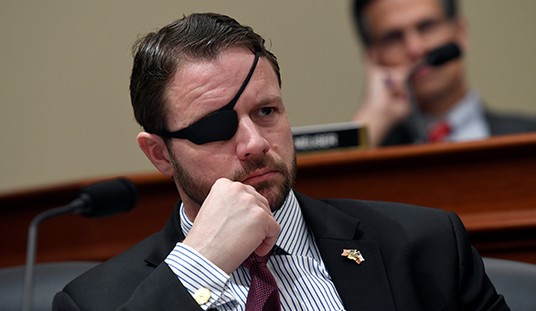Although the Obama administration made quite a show last spring of teaming up with Mexico to help defeat ruthless drug cartels that operate their import-export business in both countries, it’s obvious that the United States doesn’t have its heart in this fight.
For instance, most of the $1.4 billion approved by Congress in the Merida Initiative still hasn’t been delivered.
But what’s really surprising is that now it seems Mexico might not be fully committed to the battle either. Even after arresting more than 50,000 drug suspects and suffering more than 11,000 casualties, some Mexican authorities still seem uneasy having “stirred the hornet’s nest.” The Mexican people are both tired of the conflict and terrified by it. And some political leaders are even looking to find a way to accommodate the drug trade and get back to the way things used to be.
There are those who say that one way to cool things off would be to legalize drugs. And that is essentially what the Mexican Congress did recently by passing a law that decriminalizes the possession of small amounts of marijuana, cocaine, heroin, LSD and methamphetamine while encouraging publicly-funded treatment for drug dependency. The law spells out maximum “personal use” amounts for drugs — 5 grams of marijuana, half a gram of cocaine, 50 milligrams of heroin, 40 milligrams for methamphetamine, and 0.015 milligrams of LSD.
Anyone caught with these small amounts or less will no longer face criminal prosecution. Instead, for the first two offenses, they’ll be encouraged to seek drug treatment. On the third offense, treatment is mandatory.
President Felipe Calderon, the same person who started the drug war in the first place, recently signed the bill into law. Mexican authorities downplay the change by insisting that it has long been the practice of prosecutors to not charge people caught with small quantities of drugs.
That may be, but now it’s the law. And that sends a different message: that Mexico is retreating in the drug war.
At first glance, you might think this would be another and more strategic way to attack the cartels by undercutting their profits. But this would be a better argument if the United States legalized drugs. After all, that’s still the primary market for most illegal drugs from Mexico. If you want to get the drug lords’ attention, and hurt their bottom line, legalizing drugs north of the border would probably do the trick.
But south of the border, the tactic of legalizing drugs isn’t an attack as much as an act of appeasement. Up to now, Mexico has experienced only small traces of the drug trade and only then because, with Mexican authorities cracking down on exports to the United States, drug traffickers have to sell more of their product domestically. But the dealers aren’t making much profit, since Mexican customers — mostly young people in urban centers — won’t pay the high prices tolerated by their American counterparts. After all, Mexican drug lords have, over the years, gotten rich off dollars — not pesos.
Legalization is part of a feeble attempt to manage, someday maybe even regulate, the drug trade. The hope is that drug traffickers will settle for half a loaf — pocketing these smaller transactions — and stop terrorizing the Mexican people.
One Mexican businessman, who now lives in San Diego, put it to me this way: Why not let individual states in Mexico decide if they want to legalize certain kinds of drugs within their jurisdiction. That way, he said, drugs will find their way into some areas but they’ll be kept out of others. Let people pick their poison — literally.
But that argument misses the obvious: If you legalize drugs, you will experience more drug use. Period. More people will become addicted. More crimes will be committed to support people’s habits. More families will be destroyed.
Certainly, Mexico has the right to set priorities for who it prosecutes and who it doesn’t. That is an internal matter best settled by its criminal justice system. However, in this case, it is obvious that legalizing drugs is a response to mounting pressure by drug traffickers. In that respect, this policy change is an example of giving into evil.
In the history of the world, this isn’t exactly the first time that has happened. Fear makes people — and nations — do foolish and self-destructive things. It is always regrettable and never excusable. And, as a partner in the drug war, the United States should say so loud and clear.








Join the conversation as a VIP Member